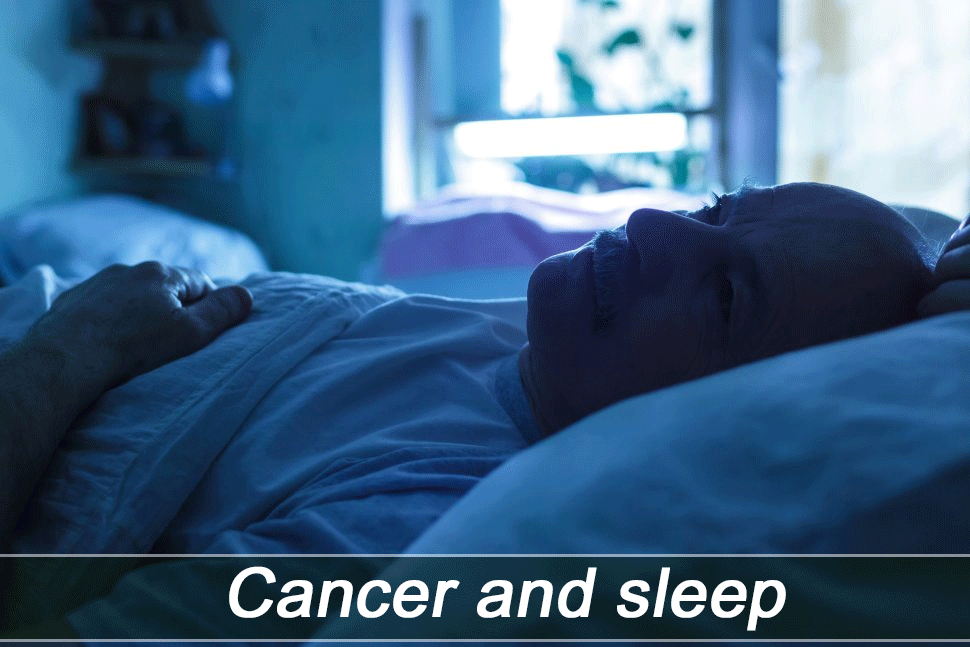Cancer is a term used to describe a group of diseases characterized by abnormal cell proliferation. They have the potential to infiltrate or spread to other parts of the body.
Benign tumors, on the other hand, do not spread. A lump, unusual bleeding, a persistent cough, unexplained weight loss.
It also causes changes in bowel movements are all possible indications and symptoms. While these signs and symptoms may suggest cancer, they could also signal something else.
Cancer is a huge public health issue that affects people all over the world. Cancer will be diagnosed in roughly 21% of men and 18% of women.
Therefore, at some point in their lives, according to estimates. Those frightening numbers are only anticipated to escalate as the population grows older.
Many sleep scientists have turned their attention to how sleep links with cancer. It makes understanding of sleep’s vital role in general health has expanded.
Experts have discovered a complicated association, albeit additional research is needed. Sleep disturbances may be linked to the development of some cancers. They may also have an impact on cancer progression and therapy effectiveness.
Cancer can also have an impact on sleep. Also, the cancer symptoms or treatment side effects cause sleeping problems and lower people’s quality of life. Cancer can also cause long-term physical and mental changes. These make it difficult to sleep, even in cancer survivors who have completed their treatment.
It’s possible to improve one’s health by understanding the complicated connection between cancer and sleep. Although it is hard to completely reduce cancer risk, getting enough sleep may help.
Better sleep may help cancer patients feel better both physically and emotionally, boosting their capacity to cope with the disease.
Connection Between Sleep and Cancer
Patients with cancer are more likely to develop insomnia and other related problems . It result in both the medical and psychological elements of the disease.
Hospitalization, treatment side effects, pain, and worries related to a recent diagnosis. These are all factors to make it difficult to sleep. Many cancer survivors report chronic sleeplessness problems even after coming into remission, even a decade later.
Anxiety, despair, profound weariness, digestive-system issues, breathing problems, hot flashes, night sweats, and pain. These prevent you from falling and staying asleep throughout cancer treatment.
Unfortunately, long-term use of these sedatives may contribute to the development of the condition. The use of hypnotics may raise the risk of cancer over time. Therefore, According to a recent meta-analysis of various observational studies.
Different aspects of sleep, including sleep length, sleep quality, circadian rhythm, and sleep disorders. They influence cancer risk. However, studies on this area are not always consistent or conclusive. They may cause difficulty in reliably acquiring long-term data on sleep.
Read More Blog:- How Can Modalert 200 Used To Treat Sleep Disorder: Best Smart Pill
Read More Blog:- Buy Online Tapentadol 100mg #(newlifegrit.com/tapentadol/100mg/)
The following are some of the risk factors for insomnia and other sleep disturbances in cancer patients:
- Treatment for Pain (chemotherapy, radiation, surgery)
- Prescription drugs (steroids, opioids, chemotherapeutics, antidepressants, etc.)
- Fatigue
- Factors that cause disease (tumours secreting steroids, itching, decreased melatonin production, sweating, fevers, etc.)
- Psychological irritants
- Surroundings(hospitalization)
- Anxiety & Depression
In addition, lack of sleep may increase the risk of cancer indirectly. Sleep deprivation links to obesity. It is a known risk factor for a variety of cancers. Sleep deprivation links to immune system disorders. Like chronic inflammation, links to increased risk of cancer.
Is a lack of sleep linked to an increased risk of cancer?
Sleep deprivation is a widespread problem in our society that has been rising for decades. More than one-third of American people do not receive the required 7 hours of sleep per night. Teenagers suffer from sleep deprivation and debt. With as few as 15% of them obtaining the recommended 8-10 hours of sleep per night. Short sleep associates with an increased risk of major and chronic illnesses. Such as heart disease and stroke, obesity, and type 2 diabetes in studies. What about cancer??
Currently, scientific research is contradictory. Insufficient sleep does not elevate the risk of statistical significance. There is a risk of cancer in a couple of recent evaluations of research. At the same time, another research link to lack of sleep. It increases the risk of numerous types of cancer. Short-sleep duration, which is another way of expressing not sleeping enough.
It associates with an increased risk of colorectal cancer in studies. Inadequate sleep links to the risk of colorectal adenomas increment. Polyps are present in the colon. It sometimes turns cancerous. Multiple types of research, including one recent long-term, large-scale study. It suggests lack of sleep may increase the risk of breast cancer. It’s one of the most studied types of cancer.
Sleep duration—or quantity—is important for many aspects of health. But so is sleep quality, as well as sleep schedule and pattern. Furthermore, there is substantial evidence that suggests that sleep deprivation, poor quality, and irregular timing. It may have a major impact on cancer risk.

